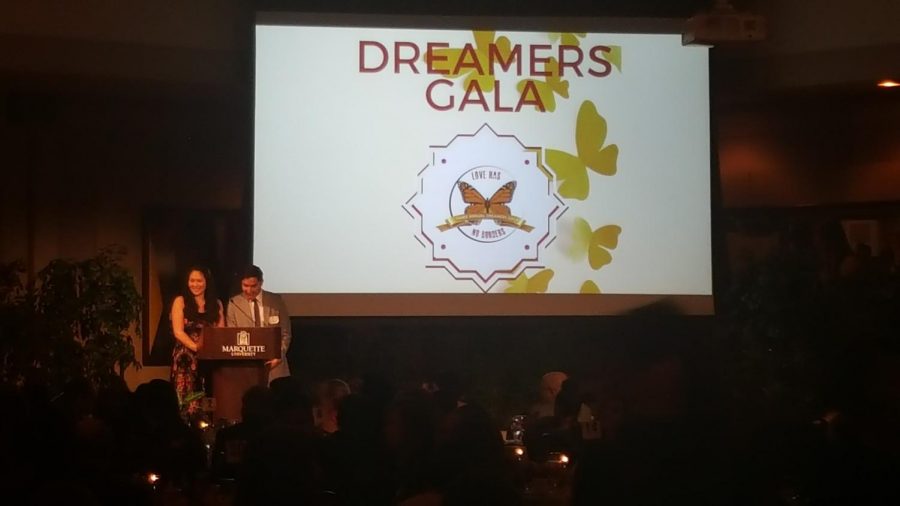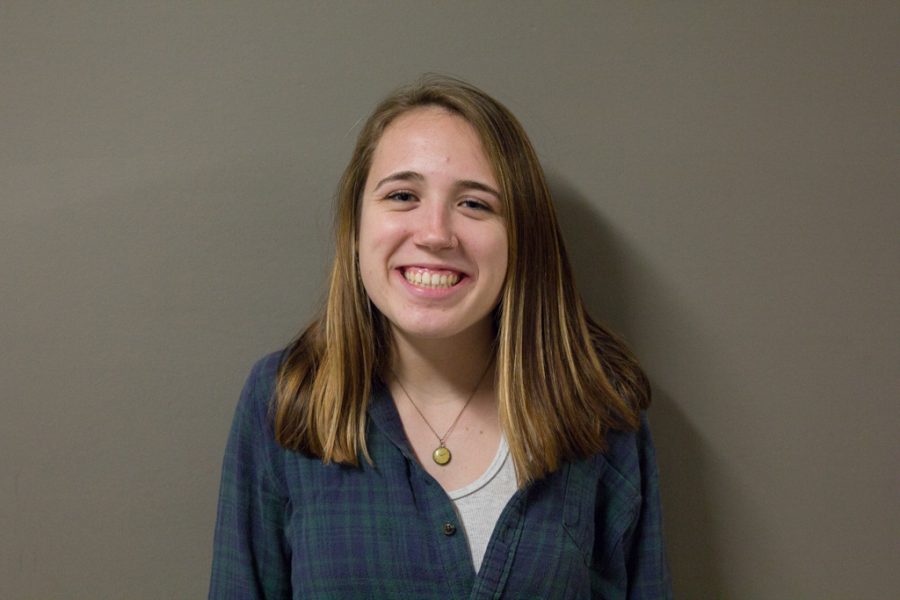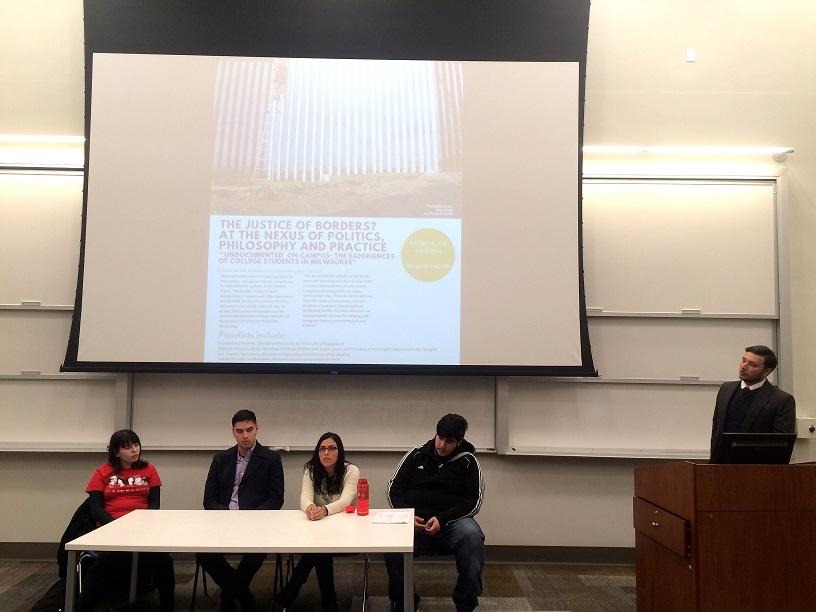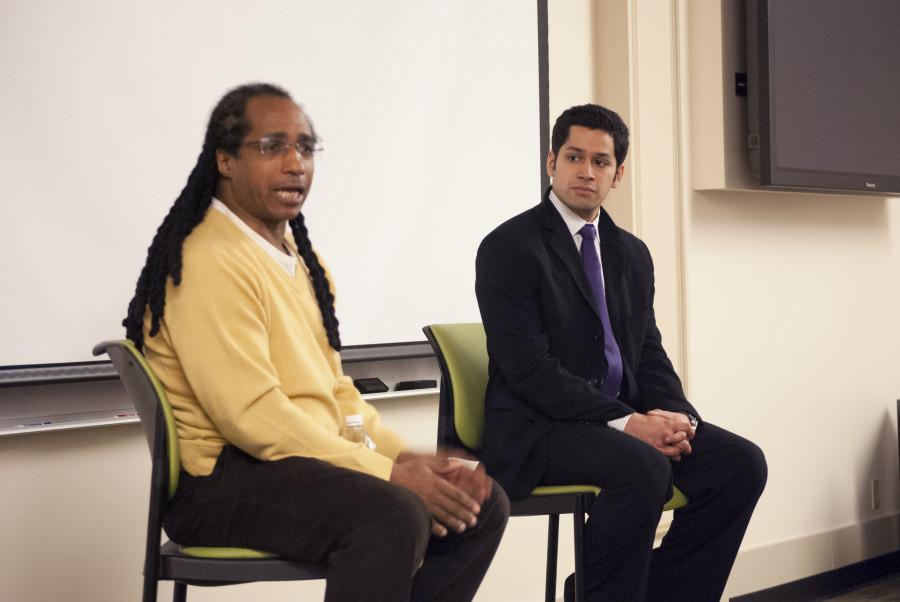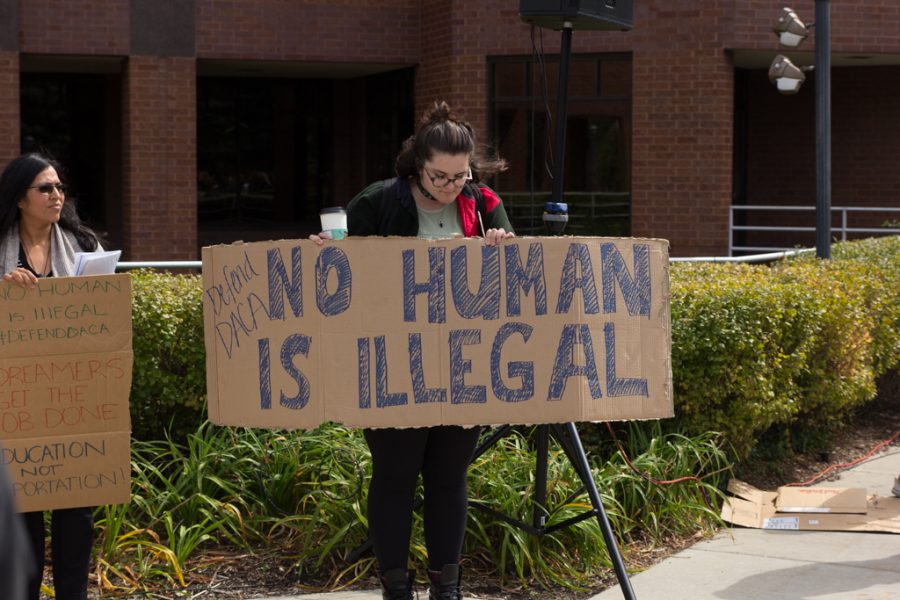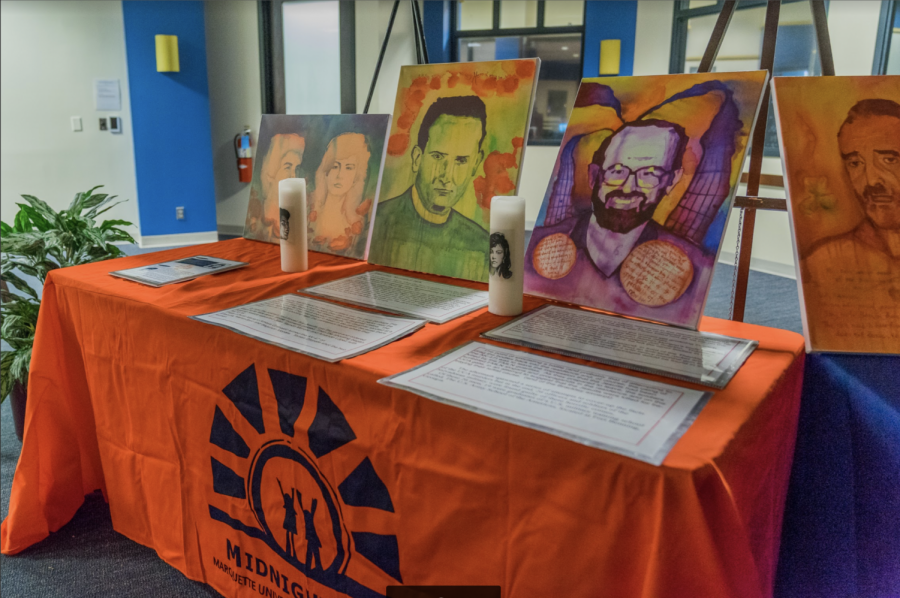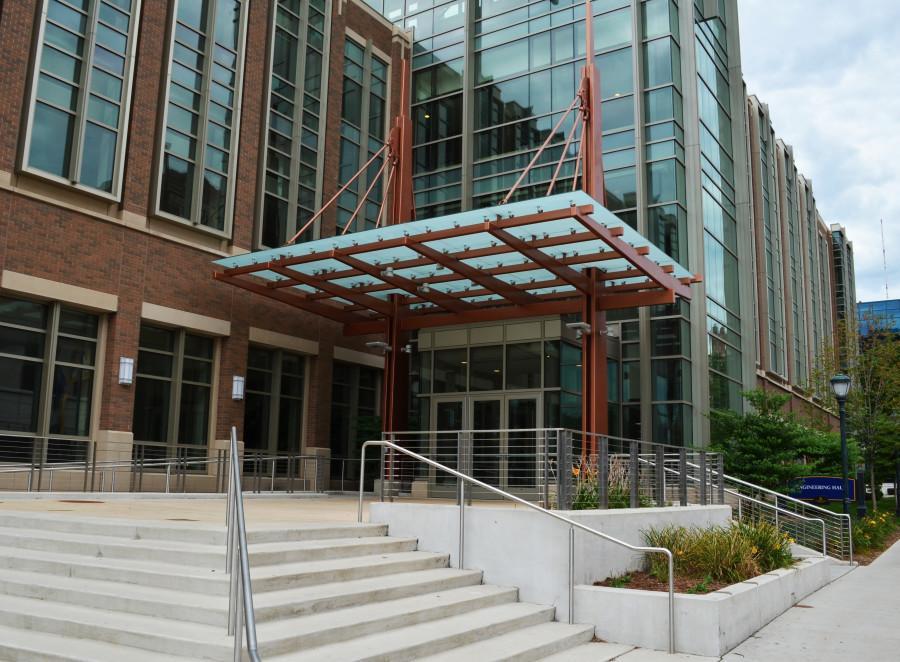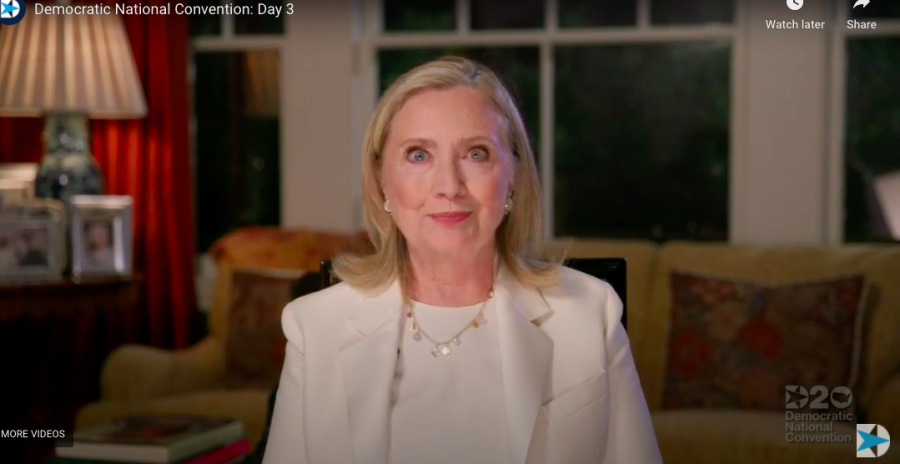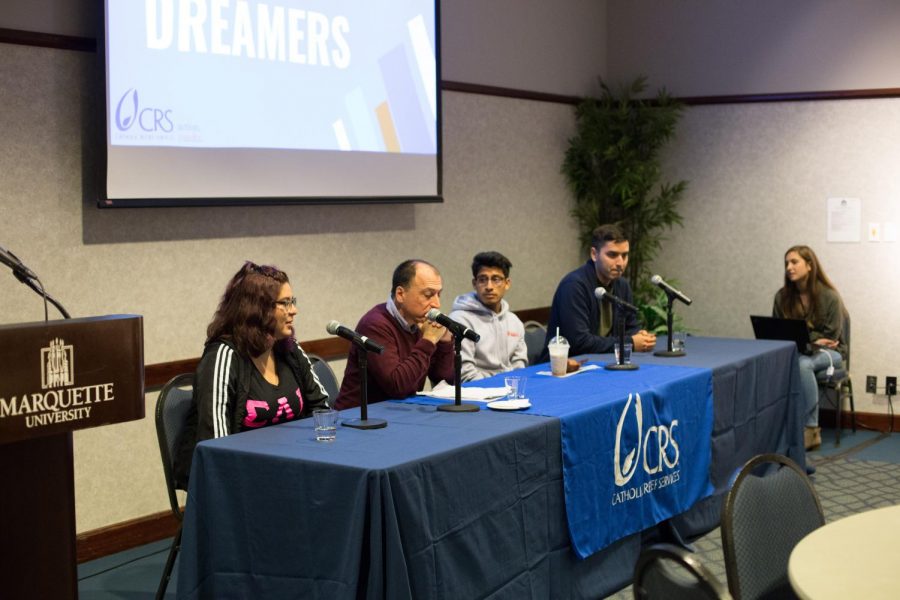Undocumented students are faced with frustration and uncertainty as Congress has yet to act on drafting a permanent DREAM Act — but they still have Marquette to count on.
Congress passed a bill March 24 with no considerations for a permanent DREAM Act. Currently, only rulings from federal judges have prevented the Trump administration from rescinding Deferred Action for Childhood Arrivals entirely. There is no longer an application process for the DACA program. Trump tweeted April 1 that there would be “NO DACA DEAL.”
But Marquette said they will stand by Dreamers no matter what.
“At Marquette, we stand with our undocumented students. We welcome all, not just some, to our university,” the university said in a statement in September. “We offer our heartfelt support for so many students and their families throughout this time of uncertainty.”
“They had experienced for a few years a sense of hope and stability, and the rug was pulled out from under them,” Jacqueline Black, associate director for Hispanic initiatives, said. “DACA was never a permanent fix; it was meant to be a Band-Aid until Congress could actually do a legislative fix.”
Eva Martinez Powless, director of the Office of Intercultural Engagement, said the university has been working with undocumented students before DACA was implemented.
In order to be protected under DACA, applicants needed to be under age 31 as of June 15, 2012, and they must have immigrated before their 16th birthdays. Applicants needed to continuously reside in the United States since June 15, 2007, up until the program’s inception five years later. They also needed to be in some form of school or have certification of previous education, and they could not be convicted of a felony or significant misdemeanor.
Applicants were then responsible for gathering a long list of documents to prove they met these requirements, and they had to fill out forms for U.S. Citizenship and Immigration Services. The program does not grant recipients citizenship, but it is a guarantee that they will not be deported for an allotted amount of time. During that time, recipients must remain in education or employment and pay taxes.
But Martinez Powless said there are undocumented students who did not qualify for DACA, and would not qualify today if DACA applications were still open.
The university said it supports the nations’s 740,000 undocumented students in its September statement. It said it will continue to prioritize providing all students access to college degrees and to actively lobby to support the DREAM Act and bipartisan BRIDGE Act. The BRIDGE Act is a bipartisan measure that grants temporary deportation relief to undocumented immigrants.
Joenny Lopez Cuevas, a junior in the College of Arts & Sciences, moved to America when she was five. She is one of 40,000 people who received citizenship through the DACA program.
“(The U.S.) is my home,” Lopez Cuevas said. “It’s a lot of Dreamers’ homes. We leave our country at a young age, and we come here for a better opportunity.”
Valeria Navarro Villegas’ father worked 4 a.m. to 4 p.m. at a construction job. Her mother, who was unable to drive due to a medical condition, walked with Valeria and her sisters to get them to school. It’s just a few of the sacrifices the family made to get to America.
“We may not all share the same story, but we have all been affected by the sacrifices that our parents have made and the hardships that we’ve had to endure,” Navarro Villegas, a 2016 graduate, said during a keynote speech at a Dreamer’s Gala. “It is not an easy life to lead. Despite the emotional and psychological trauma that we face every day, we wake up every morning ready to give this country our best. We all strive to be the leaders of our country. This country.”
The Dreamer’s Gala is a student-led grassroots initiative to help create scholarships for undocumented students, who are ineligible for any kind of federal financial aid.
The struggle of undocumented immigrants has remained constant, even with temporary relief from executive orders like DACA. Most undocumented immigrants are still unable to receive any kind of federal aid, including from programs like Obamacare and Medicaid. Undocumented immigrants have contributed an estimated $10.6 billion to the government through taxes, according to the Institute on Taxation and Economic Policy.
“I have a lot of friends, a lot of them undocumented, who are not at Marquette, and many more who are not enrolled at a four-year university going to college,” Lupe Serna, a senior in the College of Education, said. “They have done what they can to keep going. Despite not being able to continue in college or attend a four-year university, they looked for a job, they kept pushing forward and they continued to give it their all.”
Lopez Cuevas said she believes students don’t realize they interact with peers who are undocumented students on a daily basis.
Education is one of the resources that Dreamers value most, speakers at the Dreamer’s Gala, like Rebecca Lopez, an immigration lawyer for Godfrey and Kahn, S.C., said. She emphasized that while many things can be taken away from Dreamers, education is something that remains with them forever.
“Growing up, my brothers and I, born here in Milwaukee, would hear my father tell the stories of what it would take to get an education and tell us over and over again how education was the great equalizer,” Lopez said. “Education would open doors for us. Education would make a difference for us.”
Serna described the importance of fighting for the right to an education in her speech.
“When I started to apply to colleges, I was suddenly not American enough to have the same opportunities or open doors to pursue a higher education,” Serna said. “Despite having gone through the same education system as everyone else in the country, and despite pledging allegiance to the American flag, despite living here for practically my entire life, and despite learning to speak English, I knew that I would not meet the common requirement on most applications.”
Lopez Cuevas said her status placed limitations on her educational opportunities. While she was applying to colleges, she did not yet have U.S. citizenship. The University of Oregon gave her a full-ride scholarship, but once the school found out about her status, the university rescinded her offer.
Navarro Villegas said her mother constantly reminded her and her sisters that higher education is obtainable.
“She did not allow anyone, including some of our own family members, to convince her that we, as undocumented students, could not attain higher education,” Navarro Villegas said. “Her stubbornness has raised one college graduate and two current college students.”
Student volunteers for the Dreamer’s Gala have been working since fall to send out save-the-date invitations and attract local donors. Additionally, they created all of the decorations at the Gala and arranged the room themselves. Volunteers also worked the event, taking donations and working at the raffle table.
University Provost Dan Myers said Dreamers help exemplify what the university stands for. He commended student volunteers for the dedication they have to arranging the event and scholarship.
“Your commitment to the (Ignacio Ellacuria, S.J. Dreamer’s Scholarship) and this event are important,” Meyers said. “They state loudly what our values are. This event is a symbol of the values and the commitment of this university and its mission.”

